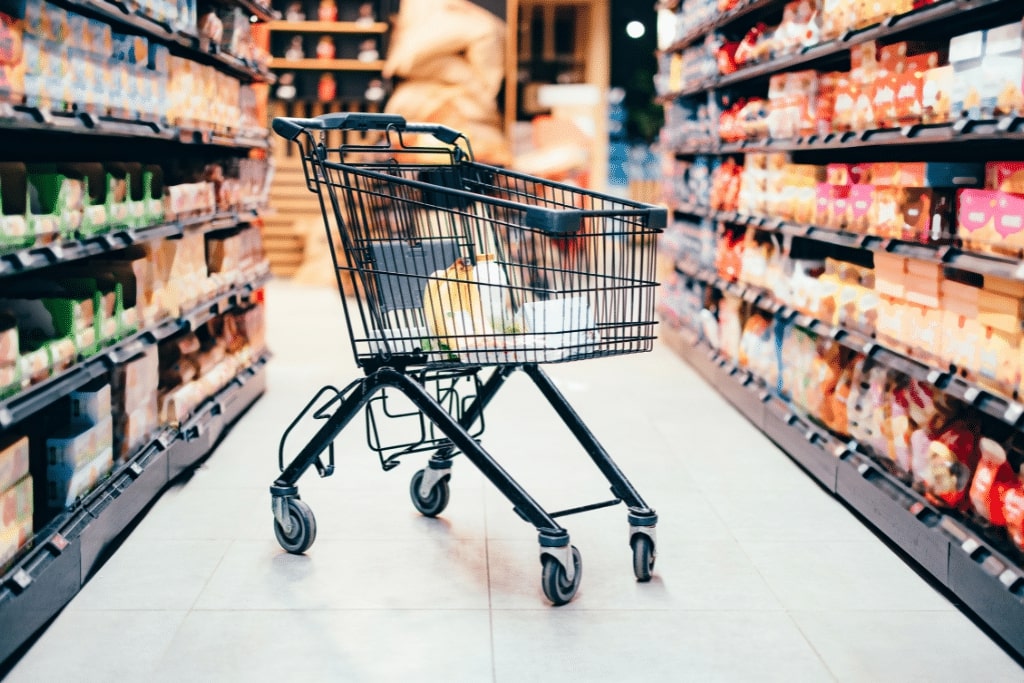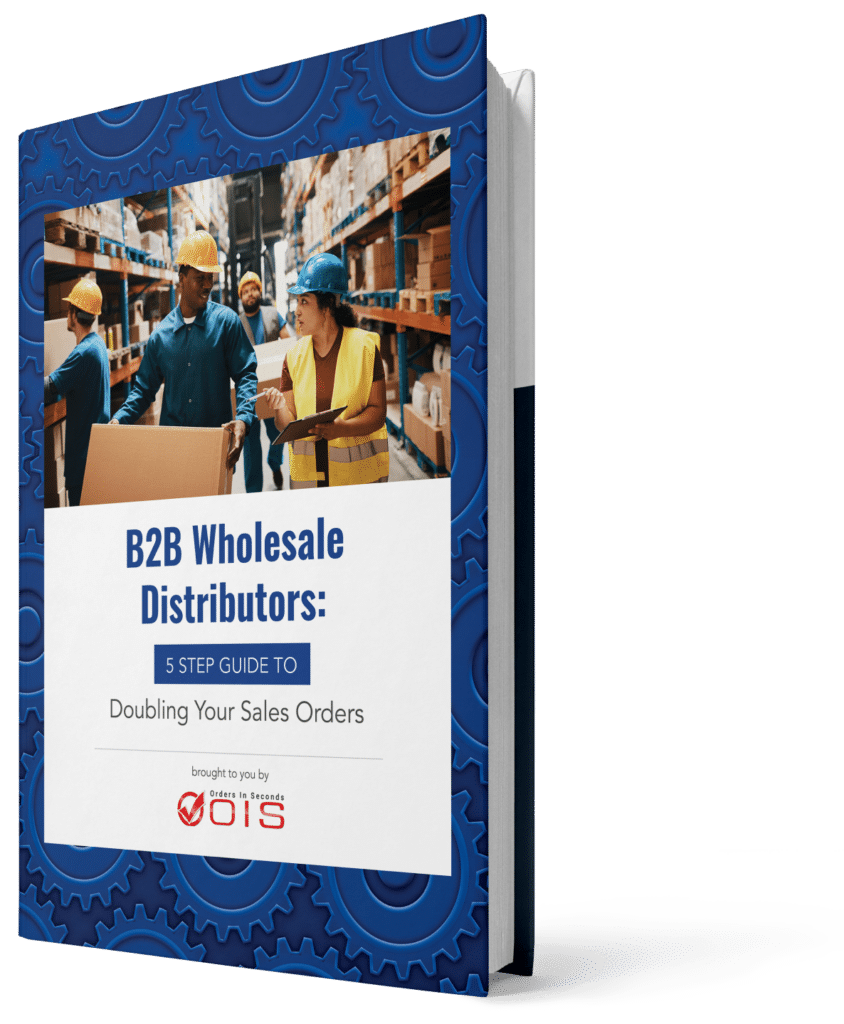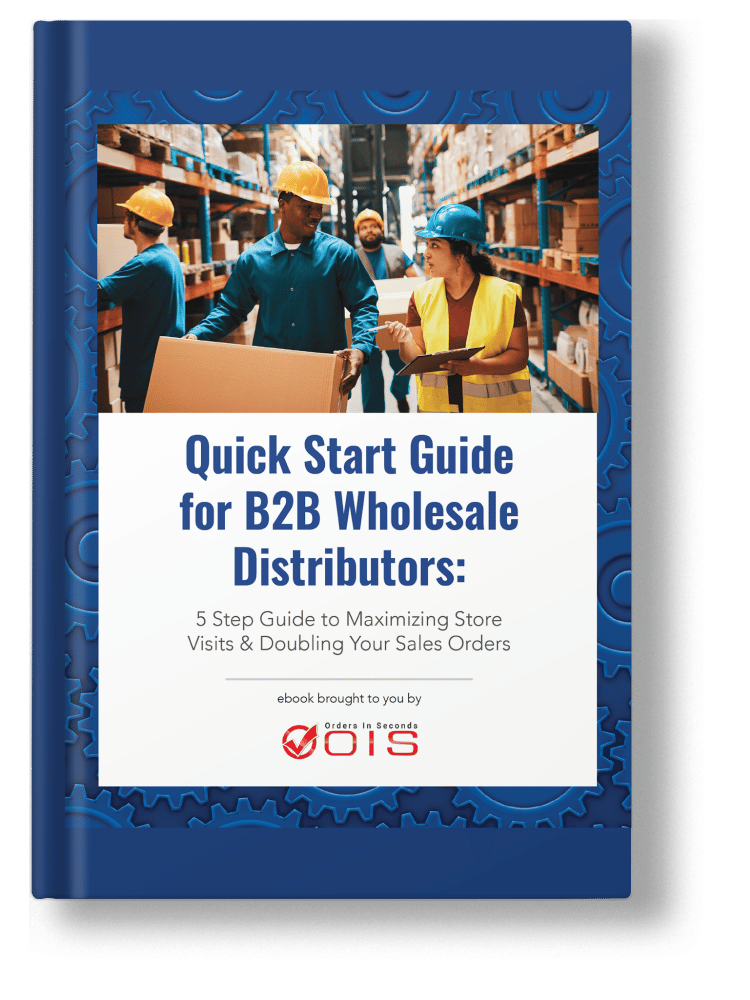Fast-Moving Consumer Goods (FMCG) are products sold quickly at low prices. Crucial in our daily lives, they include items like groceries and personal care products. This article explores the FMCG meaning and its importance in retail.
Key Takeaways
- FMCG, or Fast-Moving Consumer Goods, refers to products that have a short shelf life, high sales volume, and low costs, making them essential in everyday consumer life.
- The FMCG sector significantly contributes to the economy by driving sales and creating jobs, while also heavily influencing consumer behavior and marketing strategies.
- Key trends shaping the FMCG industry include the rise of sustainable practices, technological advancements, and shifting consumer preferences towards personalization and customization.
Table of Contents
- FMCG Meaning Explained: Understanding Fast-Moving Consumer Goods
- Introduction
- What Does FMCG Stand For?
- Characteristics of FMCG Products
- Major Categories of FMCG Products
- Importance of FMCG in the Economy
- Key Trends Shaping the FMCG Industry
- The Role of FMCG Companies
- Top FMCG Brands
- Retail Analytics in FMCG
- Summary
- Frequently Asked Questions
FMCG Meaning Explained: Understanding Fast-Moving Consumer Goods
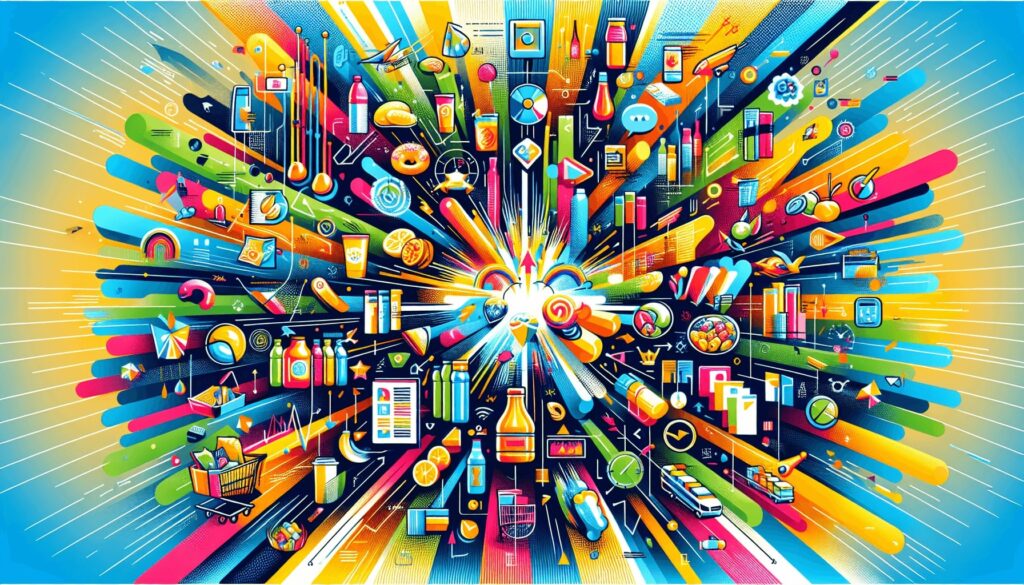
Fast-Moving Consumer Goods, or FMCG, stand out in the retail landscape due to their unique characteristics. These are products sold quickly at relatively low costs, characterized by high-volume sales and rapid inventory turnover. Think about the last time you went grocery shopping; items like milk, bread, and toothpaste likely flew off the shelves—these are classic examples of FMCG products.
The essence of FMCG lies in their necessity in everyday life and their affordability. These products often have a short shelf life, either due to high consumer demand or perishability, necessitating regular restocking by retailers. As a subset of Consumer Packaged Goods (CPG), FMCG items are sold faster, making them indispensable in the retail industry.
Introduction
FMCG, or Fast-Moving Consumer Goods, are pivotal to the retail industry, representing a significant portion of total sales and profoundly influencing consumer behavior. These goods are staples in our lives, sold quickly and at relatively low costs, making them accessible to a broad range of consumers. The FMCG sector’s vast array of products—from food and beverages to personal care items and household cleaners—ensures that almost every aspect of daily life is covered.
Grasping the nuances of FMCG is crucial for those looking to venture into the retail industry. These products not only fulfill basic consumer needs but also drive the business processes of marketing, distribution, and retailing. Consumer insights play a crucial role in tailoring these products to meet ever-changing demands.
Exploring the main differences between FMCG and other sectors allows businesses to strategize effectively, capturing market share and maintaining competitiveness.
What Does FMCG Stand For?
FMCG stands for Fast-Moving Consumer Goods, a term that encapsulates products sold at low prices and used almost daily by consumers. These items are characterized by high-volume sales and rapid inventory turnover, making them essential for retailers who benefit from their quick sales.
Grasping this term is key to understanding the dynamics of the consumer packaged goods industry.
Characteristics of FMCG Products

Fast-moving consumer goods are distinguished by their rapid sales and low prices. These products are typically low-cost and sold in large quantities, ensuring they are always in high demand. The short shelf life of many FMCG products, due to either high consumer demand or perishability, also contributes to their fast turnover. Items like milk, soft drinks, toilet paper, and over-the-counter medications are prime examples.
Due to their high turnover rate, FMCG products are frequently purchased, driving consistent demand and revenue for retailers. Integral to daily life, these goods are essential in any household, ensuring they remain a cornerstone of the retail industry.
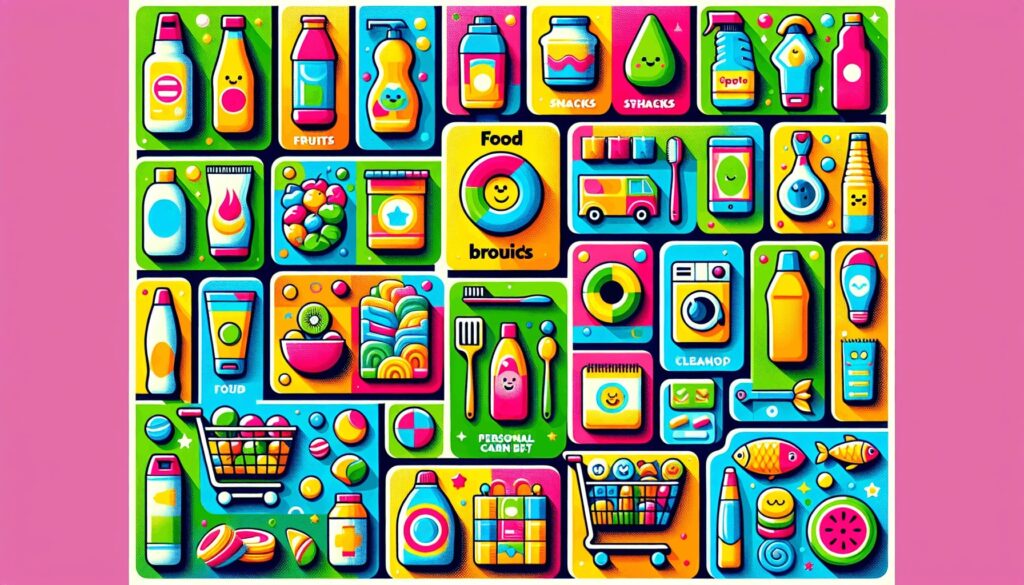
The FMCG sector encompasses a wide array of products, broadly categorized into food and beverages, personal care and hygiene, and household cleaning and care. Each of these categories plays a vital role in fulfilling consumer needs and maintaining daily routines.
Exploring these major categories in detail will highlight their significance and examples.
Food and Beverages
Food and beverages represent one of the most popular categories in the FMCG sector, reflecting high consumer demand and rapid sales turnover.
This segment features a variety of products, including:
- Packaged foods
- Snacks
- Dairy products
- Carbonated and non-carbonated beverages
- Alcoholic drinks
Perishable items like meat, dairy products, baked goods, fruits, and vegetables are also part of this category, necessitating quick sales due to their limited shelf life.
Snacks such as chips, pretzels, cookies, crackers, and nuts are also significant players in this category due to their convenience and popularity. Beverages, including healthy water brands, nutrient-rich juices made from fruits and vegetables, and alcoholic drinks like beer and spirits, further diversify the offerings and meet various consumer preferences.
Avoid the Top 5 Mistakes Wholesale Distributors Make
Are you making one of the top 5 mistakes that plague wholesale distributors? Download our free eBook to find out. We’ve also included tips and guidance to help you save time and avoid costly mistakes.
Personal Care and Hygiene
Personal care and hygiene products maintain cleanliness, health, and appearance. This category includes a wide range of items such as skincare products, haircare serums, oils, gels, and sprays, catering to various consumer needs and preferences. The projected revenue for the skincare market in the US by 2027, for instance, highlights the significant demand and growth potential in this segment.
Products like toilet paper and oral care items are everyday essentials that fall under this category, emphasizing the routine nature of FMCG products. These items are indispensable in consumers’ lives, ensuring that they are always in high demand and readily available in the market.
Household Cleaning and Care
Household cleaning and care products are vital for maintaining a clean and healthy living environment. This category includes items like disinfectants, which are crucial for eliminating microorganisms on surfaces and reducing health risks. The importance of these products has been particularly highlighted during times of health crises, where hygiene becomes a top priority.
Laundry detergents, surface cleaners, and other household care products occupy significant shelf space in retail stores due to their necessity and high turnover. These products not only ensure cleanliness but also contribute to overall household wellness, making them essential in everyday life.
Importance of FMCG in the Economy
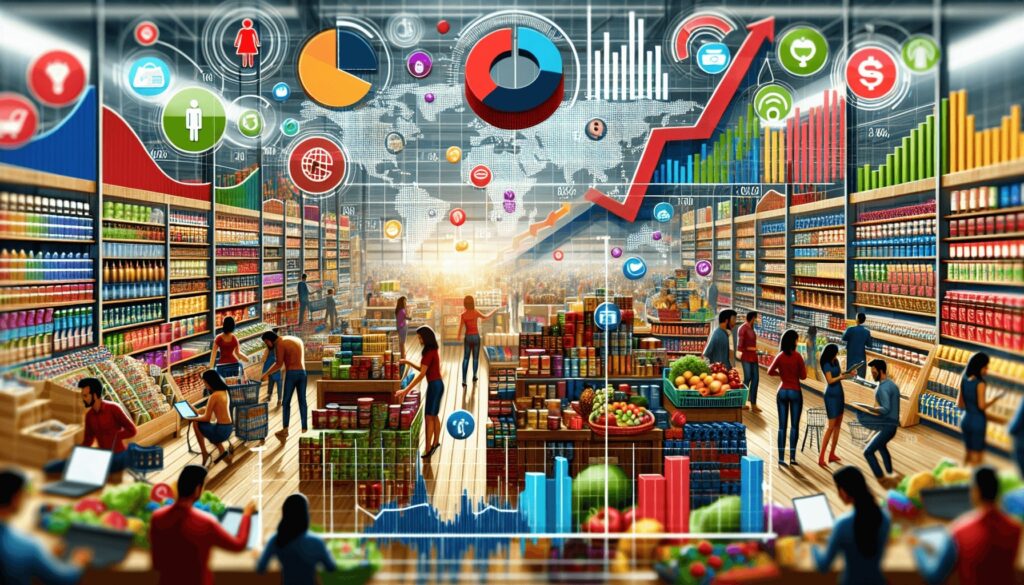
The FMCG sector significantly contributes to GDP and overall economic growth, playing a pivotal role in the economy. This industry not only drives sales but also creates millions of jobs across various supply chain areas, from manufacturing to retail. The high demand and rapid sales of FMCG products make them indispensable for retailers, ensuring consistent revenue streams.
The FMCG sector significantly boosts government finances through tax revenues from sales and corporate taxes. The continuous demand for FMCG products fuels growth in the retail and distribution sectors, further stimulating economic activity. The industry’s strong financial performance, often achieving high returns on invested capital, underscores its importance in the economic landscape.
FMCG’s influence extends to ancillary industries like logistics and packaging, enhancing overall economic activity. The interconnectedness of these sectors ensures that the growth of FMCG products translates into broader economic benefits, making them a cornerstone of economic stability and growth.
Key Trends Shaping the FMCG Industry
The FMCG industry is continuously evolving, driven by various market trends such as:
- population growth
- urbanization
- rising disposable incomes
- technological advancements
These factors, combined with changing consumer preferences, are redefining the FMCG landscape and driving significant growth.
Exploring key trends reveals the dynamic nature of this industry.
Sustainable Practices and Eco-Friendly Packaging
Consumers are increasingly favoring brands that utilize sustainable practices and eco-friendly packaging options. This trend is driven by a growing awareness of environmental issues and a desire to reduce plastic usage and waste. FMCG companies are responding by adopting plant-based and sustainable packaging solutions to meet consumer demand for environmental responsibility.
Brands that embrace fair trade and sustainable practices not only enhance their market appeal but also contribute to a healthier planet. The shift towards eco-friendly packaging is not just a trend but a necessity for the future of FMCG, ensuring long-term sustainability and consumer trust.
Technological Advancements
Technological advancements revolutionize the FMCG industry, as companies leverage big data analytics for better demand forecasting and streamlined inventory management. Innovations such as chatbots and virtual assistants are being employed to improve customer order processing and overall shopping experiences. These technologies allow FMCG companies to operate efficiently and meet consumer expectations effectively.
Technological integration in distribution systems enhances visibility and efficiency, allowing companies to manage their supply chains more effectively. The use of AI-powered systems and machine learning further optimizes inventory levels, demand forecasting, and logistics, contributing to increased market share and cost savings.
Changing Consumer Preferences
Catering to changing consumer preferences lies at the heart of FMCG strategies. Personalization and customization are becoming increasingly important, with companies using advanced data analytics to enhance brand loyalty and market share. By analyzing consumer behavior and preferences, FMCG companies can tailor their products and marketing efforts to meet specific needs and preferences.
Adapting distribution strategies to accommodate diverse consumer preferences in different regions is also crucial for success in the FMCG sector. This flexibility ensures that companies can effectively meet the varying demands of consumers, enhancing their competitive edge in the market.
The Role of FMCG Companies
FMCG companies meet consumer needs and drive market trends. These fmcg company must continuously innovate and develop new product ideas to stay ahead of the competition. A well-functioning supply chain covering procurement, manufacturing, distribution, and retailing is vital for success.
Advertising and marketing are crucial components of FMCG strategies. Companies put significant resources into advertising. This helps them capture consumer attention and expand their market share. Building brand awareness through product packaging, digital marketing, and in-store promotions helps FMCG companies establish strong identities.
Data analytics enhance marketing efforts, allowing companies to shift from reactive to proactive decision-making. By understanding consumer behaviors, FMCG companies can optimize their engagement strategies and enhance customer retention. Leading FMCG companies like Procter & Gamble and Colgate-Palmolive highlight the importance of competitive positioning and market
Top FMCG Brands
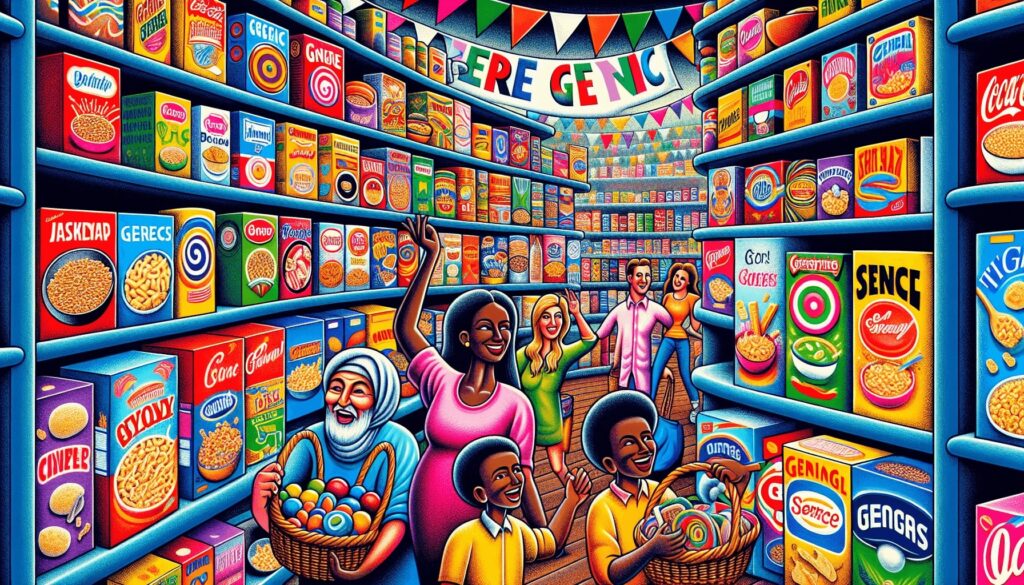
Top FMCG brands like Pampers, L’Oréal, and LEGO are recognized globally for their significant market value and consumer trust. These brands have built strong identities and loyal customer bases through consistent quality and innovative products.
Unilever exemplifies the success and impact of well-established brands in the FMCG industry. The achievements of these brands underscore the importance of strong branding and market presence in the competitive FMCG sector.
Retail Analytics in FMCG
Retail analytics empower FMCG companies to optimize sales by identifying fast-selling products and markets. Data-driven decision-making aids in understanding market trends, optimizing inventory management, and enhancing pricing strategies.
Advanced analytics like sentiment analysis and social listening revolutionize market research in the FMCG industry, enabling companies to adapt quickly to consumer needs. Predictive analytics further optimize inventory levels, demand forecasting, and logistics, ensuring efficient supply chain management and reducing costs.
Summary
In summary, FMCG products are essential to our daily lives and the global economy. Their high turnover and low cost make them indispensable for consumers and retailers alike. The FMCG sector drives economic growth, creates jobs, and continuously evolves to meet changing consumer preferences and technological advancements. As we look to the future, the importance of sustainability and innovation will continue to shape the FMCG landscape.
Frequently Asked Questions
FMCG stands for Fast-Moving Consumer Goods, referring to products that are sold quickly at low prices and are used frequently by consumers. This category includes everyday items that are essential in daily life.
Examples of FMCG products include packaged food, beverages, toiletries, over-the-counter medicines, and household cleaning products. These items are characterized by their quick turnover and essential nature in daily life.
The FMCG sector is vital to the economy as it significantly contributes to GDP, creates millions of jobs, and generates substantial tax revenues, thereby driving growth in related sectors such as retail and distribution. Its impact is crucial for overall economic stability and growth.
Technological advancements are significantly enhancing the efficiency of the FMCG industry through the use of big data analytics, AI, and machine learning for demand forecasting, inventory management, and customer order processing. This integration of technology is crucial for improving operations and meeting consumer needs effectively.
Sustainable practices and eco-friendly packaging, along with technological advancements and evolving consumer preferences, are currently shaping the FMCG industry. These trends reveal a shift toward greater environmental responsibility and innovation in product delivery.
Are You a Distributor of FMCG?
Fast-Moving Consumer Goods demand fast-moving solutions. As a distributor, keeping up with the rapid pace of FMCG requires efficient tools to manage orders, enhance order-picking in your warehouse, optimize deliveries, and support sales teams. At Orders in Seconds, we offer a comprehensive suite of solutions to streamline your operations, reduce errors, and keep your customers satisfied.
➡ ️ Learn how OIS can help and ensure your FMCG distribution stays ahead of the curve with a FREE demo.
Consumer Goods Translation:
This refers to the process of translating marketing materials, product labels, packaging, and other consumer-facing content for products sold to consumers. It’s crucial for companies expanding into international markets to ensure their messaging is culturally appropriate and accurately conveys product information.
Define Fast Moving Consumer Goods (FMCG):
FMCGs are products that sell quickly at relatively low cost. These are typically non-durable goods, meaning they are consumed or used up frequently. Examples include:
- Packaged foods (e.g., snacks, beverages)
- Toiletries (e.g., soap, shampoo)
- Household products (e.g., cleaning supplies)
- Over-the-counter drugs
Fast Moving Consumer Goods Marketing Strategy:
FMCG marketing strategies often focus on:
- High Volume: Driving large sales volumes through widespread distribution.
- Brand Awareness: Building strong brand recognition and loyalty.
- Availability: Ensuring products are readily available at multiple retail outlets.
- Price Competitiveness: Offering competitive prices to attract price-sensitive consumers.
- Promotional Activities: Utilizing sales promotions, advertising, and in-store displays to drive sales.
- Packaging: Using attractive and functional packaging to stand out on shelves.
FMCG Fund Meaning:
An FMCG fund is a mutual fund or exchange-traded fund (ETF) that invests in companies that produce or distribute fast-moving consumer goods. These funds allow investors to gain exposure to the FMCG sector.
Sales Promotion Activities of FMCG Companies:
FMCG companies use a variety of sales promotion activities, including:
- Discounts and Coupons: Offering price reductions or vouchers.
- Free Samples: Providing trial-sized products to encourage purchase.
- Contests and Sweepstakes: Running competitions with prizes to generate excitement.
- Bundling: Offering multiple products together at a discounted price.
- Point-of-Sale Displays: Using eye-catching displays in retail stores to attract attention.
Supply Chain Management Systems:
These are software systems that help businesses manage the flow of goods and information across their supply chains. They can include:
- Inventory Management: Tracking inventory levels and optimizing stock.
- Warehouse Management: Managing warehouse operations and optimizing storage.
- Transportation Management: Planning and optimizing transportation routes.
- Demand Planning: Forecasting future demand and planning production.
Over-the-Counter Drugs (OTC):
These are medications that can be purchased without a prescription. They are typically used to treat common ailments and are considered safe for self-administration.
Global FMCG Market:
The global FMCG market is a large and competitive market, with companies operating worldwide. Factors influencing the market include:
- Population Growth: Increasing demand for consumer goods in developing countries.
- Changing Consumer Preferences: Shifting consumer tastes and trends.
- Technological Advancements: E-commerce and digital marketing.
- Economic Conditions: Consumer spending patterns.
Processed Foods:
These are foods that have been altered from their natural state through various methods, such as:
- Canning
- Freezing
- Drying
- Adding preservatives
Processed foods are often convenient and have a longer shelf life, which is why they are so popular in the FMCG sector.

